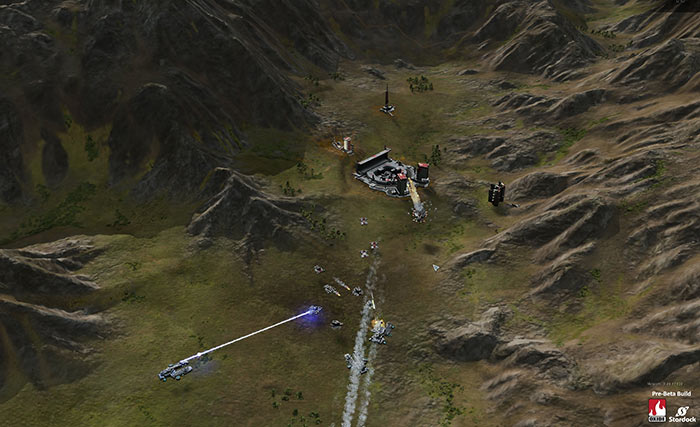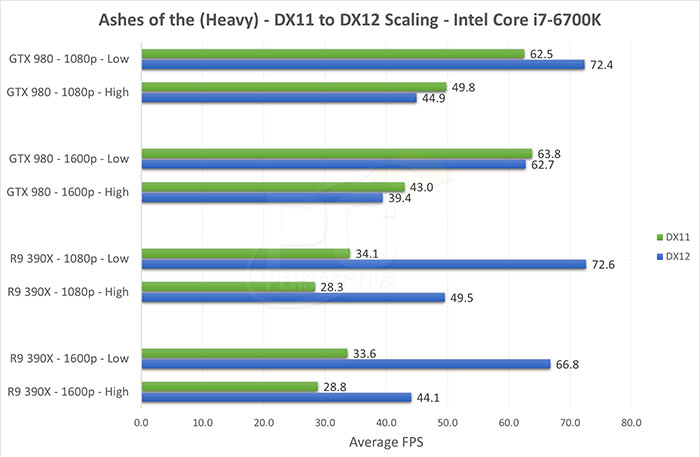Oxide games released a pre-beta of its DirectX 12 enabled massive-scale real-time strategy game called Ashes of the Singularity a few days ago. Yesterday it lifted the embargo on reporting on the game and on benchmarks conducted within this Nitrous Engine powered title. Ashes of the Singularity is particularly interesting because it is an actual to-be-released game which allows players/users to run benchmark scripted scenes using DirectX 11 and 12 APIs.

According to all the information we had before this new RTS game was released and benchmarked at various sites, DirectX12 would not just provide enhanced eye-candy but also provide a performance boost thanks to its closer-to-the-metal nature. Those with systems boasting modern multi-core CPU and GPU combinations would get greater rewards from their hardware investments. Your multi-core packing PC system would be given a proper workout at last.
In a nutshell, many sites have published Ashes of the Singularity benchmarks now and overall there's a decent boost in playing under DirectX 12 in most cases. However there's been some controversy between the AMD and Nvidia camps. In the tests I have looked at, it looks like AMD enjoys a significant boost thanks to DirectX 12 but Nvidia much less so.

PCPer has published some very interesting benchmarks for Ashes of the Singularity, using various AMD/Intel processors and AMD/Nvidia graphics and shows some fascinating results. PCPer pre-empted an Nvidia information email, which advised testers that the MSAA implementation in the game engine currently has an application-side bug, by turning off AA in all its tests. While Nvidia claims that the benchmark "is [not] a good indicator of overall DirectX 12 gaming performance" it is a game that is heading towards being commercially released using a game engine that will be used in other upcoming games. Furthermore developer Oxide Games has published a long rebuffal/explanation of why its benchmark is fair and valid.

On the topic of AMD enjoying a significant performance boost in DX12, while Nvidia gains are much more moderate, it is thought that this result is due to a combination of Nvidia's efficient DX11 optimisations and AMD's previous work on Mantle/Vulcan. Now we must anxiously await further DX12 games/apps, especially the first of those based upon popular engines like Unreal Engine and Unity.
If you want to see more analysis of one of the first DirectX12 games and the benchmark within, and more comparative charts and information, check out PCPer's excellent article. For your convenience I have embedded a video which talks you through the findings with various hardware combinations, below.













